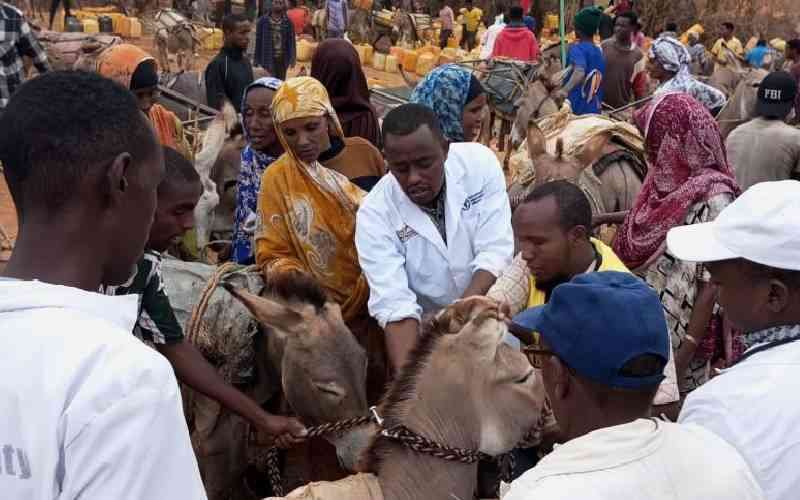
By Sharon Wanga
Braying donkeys and jerrycans clapping against each other in the wee hours of each morning, are familiar sounds that welcome one to Moyale, Marsabit County.
Out of curiosity, I follow the sounds, only to realize that the domestic animals and their minders are headed to a nearby water point at Heilu, in Manyatta ward.
I meet Fatuma Dalle, a villager who tells ‘The Standard’ that the donkeys are more than usual on that particular day because of the vaccination exercise scheduled at the dam.
“I have come here with the two donkeys that help me in my water supply business. I distribute the water I fetch from the dam daily to people living in Moyale town, who are grappling with shortages of the basic commodity,” says Dalle, a resident of Heilu.
I communicate with 42-year-old Dalle through a translator, a middle-aged man who understands both Swahili and the local Borana language.
Residents from the neighbouring communities depend on the rainwater that collects in the dam. Locals often fetch water before ten, or risk the unbearable scorching sun.
“Before, we used to trek for over five kilometres to look for water. But since we came out as a community and constructed the dam, it has relieved us from the burden of walking for long distances in search of water. We, water vendors, have taken the initiative to employ two security guards to watch over the water from being contaminated by wild animals,” she explains.
Locals believe that animals such as hyenas and other smaller species, foul their water point.
In this area, water vending is a booming business that comes with a hefty profit. Vendors buy a 20-litre jerrycan of water for five shillings and sell it for 100 shillings in the local town.
Heilu Water Point lies strategically between Kenya and Ethiopia, hence it acts as a meeting point for communities from both countries.
Source: The Standard

Leave a Reply